In my role, I've visited countless startup hubs and co-working spaces — but it's not every day that a tour includes a bomb shelter or a building that has survived a Russian missile strike.
During a trip to Kyiv two weeks ago, Tanya Chaikovska — co-founder and CEO of LIFT99 Kyiv — invited me to visit the space, learn about its restoration efforts, and meet with members of the team.
Chaikovska co-founded LIFT99 Kyiv when she was just 21 years old, partnering with Estonian entrepreneur Ragnar Sass, who had a bold vision: to create infrastructure in Ukraine that would finally allow its exceptional talent to build product companies — not just outsource for others.
Before the war, LIFT99 Kyiv quickly became one of the most influential hubs in the country: the only place where founders could raise pre-seed capital from international angels at European-level valuations, where global companies came to hire Ukrainian teams, and where the ecosystem minted a 0→1 unicorn — Matter Labs, whose founders took their earliest steps inside the hub.
So, on a crisp autumn Sunday, I made my way to the hub to speak with Lada Samarska, Operations & Development Manager, and Aliona Chernenko, a former resident turned Community & Engagement Manager, to learn more.
From Baltic roots to Ukrainian entrepreneurs
LIFT99 began in Tallinn, Estonia, in 2017, founded by a group of Estonian entrepreneurs, including Sass. Estonia had already produced companies like Skype and Pipedrive, and the founders wanted a physical space where entrepreneurs could meet, collaborate, and not feel alone.
Before LIFT99, Sass co-founded Garage48, famous for its hackathons. When he began spending time in Ukraine, he noticed something striking: massive engineering and product talent, but most of it engaged in outsourcing rather than creating startups.
After meeting Chaikovska — then a young lawyer — he proposed they build something new.
“Let’s open LIFT99 in Ukraine. The talent is here — the ecosystem just needs the platform.”
Chaikovska helped establish the legal and operational foundations of the Kyiv hub, which almost immediately became a home where founders could prototype, raise their first capital, and plug into global networks.
Home to a bright yellow helicopter
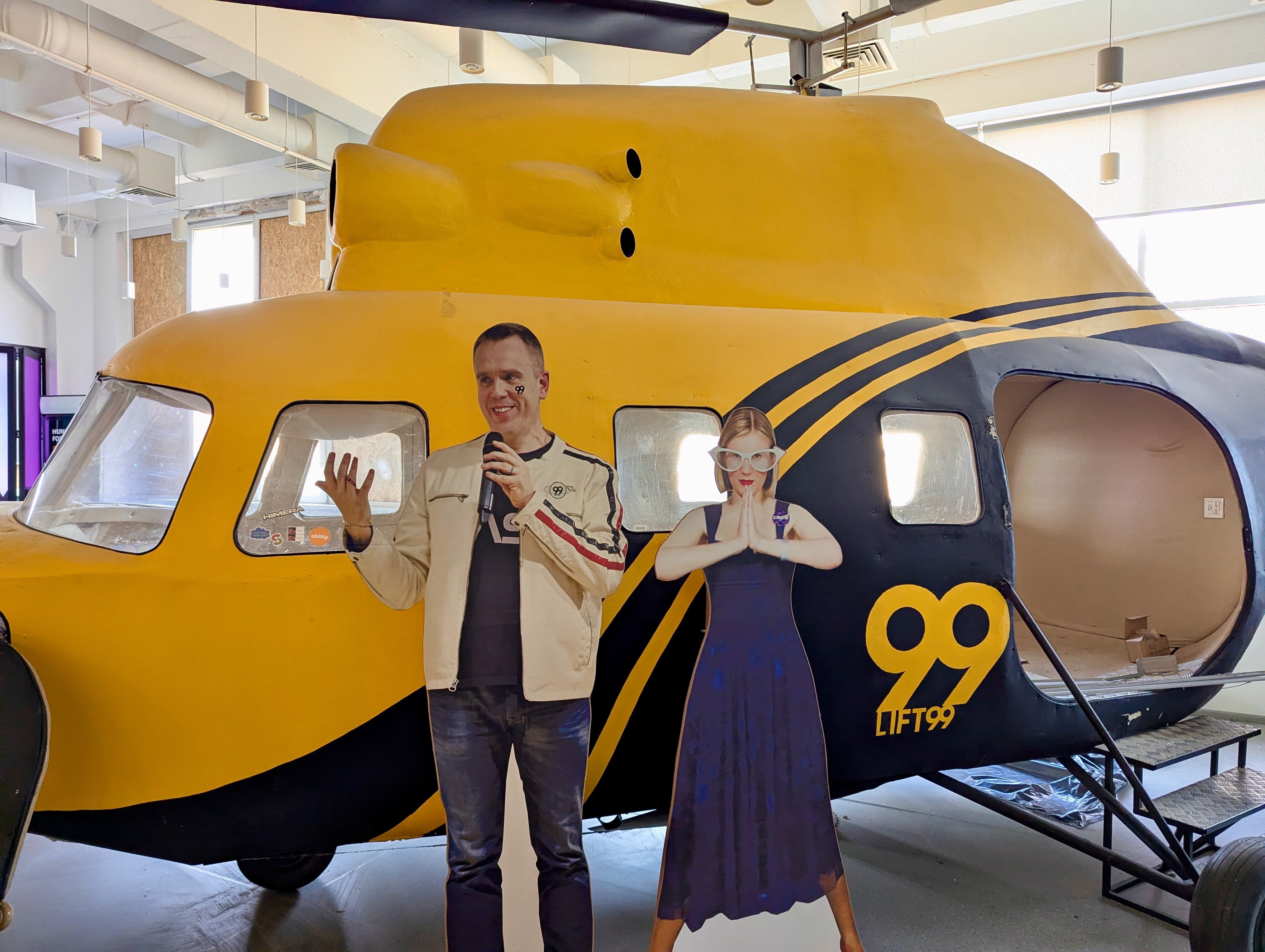
Two things stood out during my visit to LIFT99: the ongoing construction — more on that shortly — and the bright yellow helicopter in the middle of the hub. Chaikovska explains:
“We discussed how to inspire people to do crazy, big things with the help of community — and decided to remove all receptions, put a community kitchen right at the entrance, and place a real-size helicopter on the 3rd floor of a central Kyiv office.”
For months, the founders even planned for the helicopter tail to extend out onto the street. Permits ultimately prevented it, but the helicopter stayed — becoming an unofficial symbol of Kyiv’s fearless tech culture.
The hub itself is airy and warm: open kitchen, lounge areas, meeting rooms named after Ukrainian and Estonian founders, plenty of plants, a shower, and a tiny bedroom on the top floor that founders compete for during long nights.
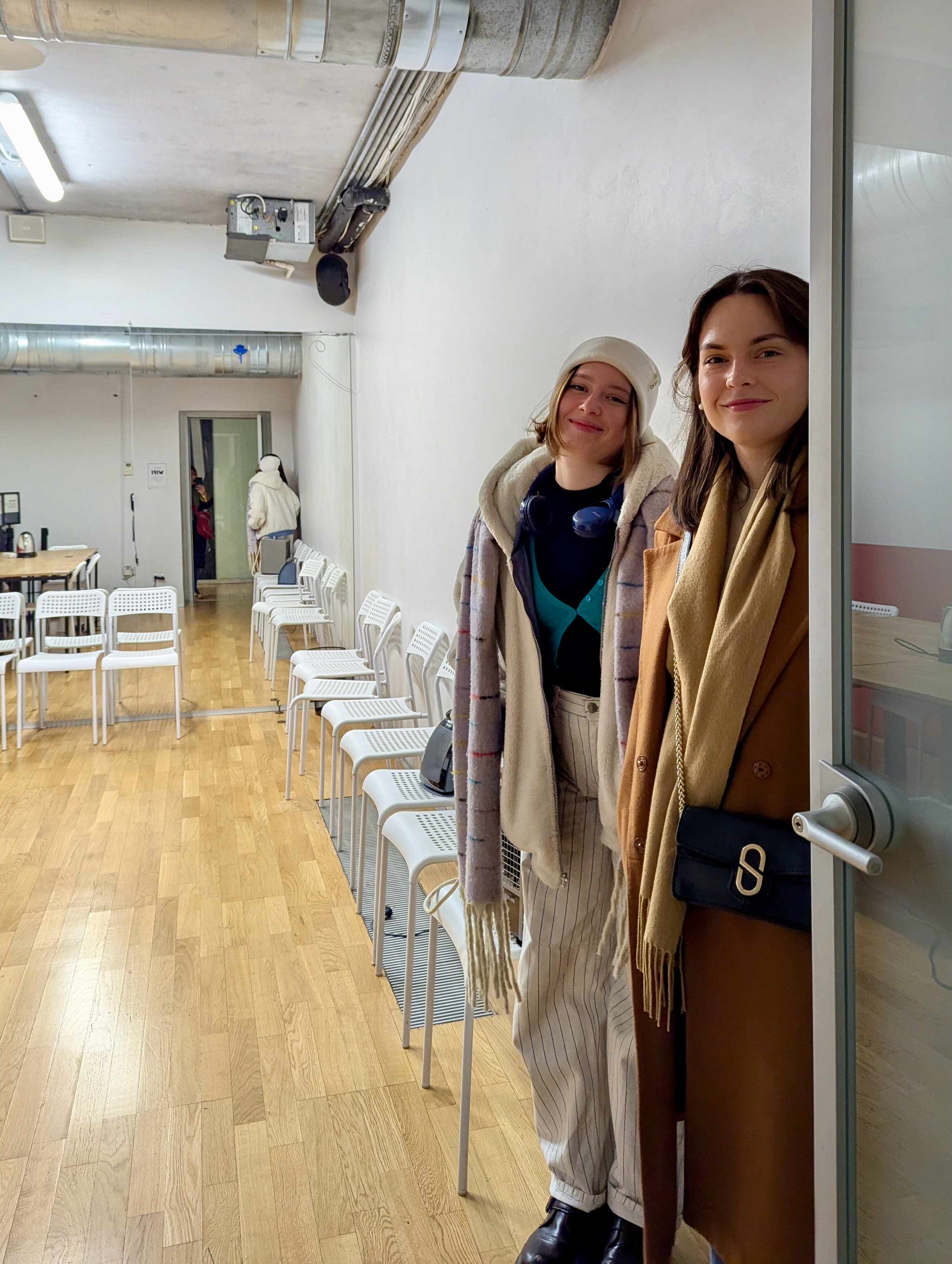
The missile attack
On the early morning of 28 August this year, two consecutive missile strikes hit Kyiv.
“I was in a nearby bomb shelter,” Samarska recounts.
“The explosions were so loud. I thought: ‘That was either my apartment or LIFT99.’ Both are within 250 meters.”
When she emerged, she saw ambulances and fire trucks — and realised it was the hub.
The building next door had taken a direct hit. Unusually, both rockets exploded on top of the building rather than piercing downward.
The blasts sent debris into surrounding structures, including LIFT99. The damage was extensive: shattered windows, 90 per cent of interior glass gone, broken furniture, collapsed walls.
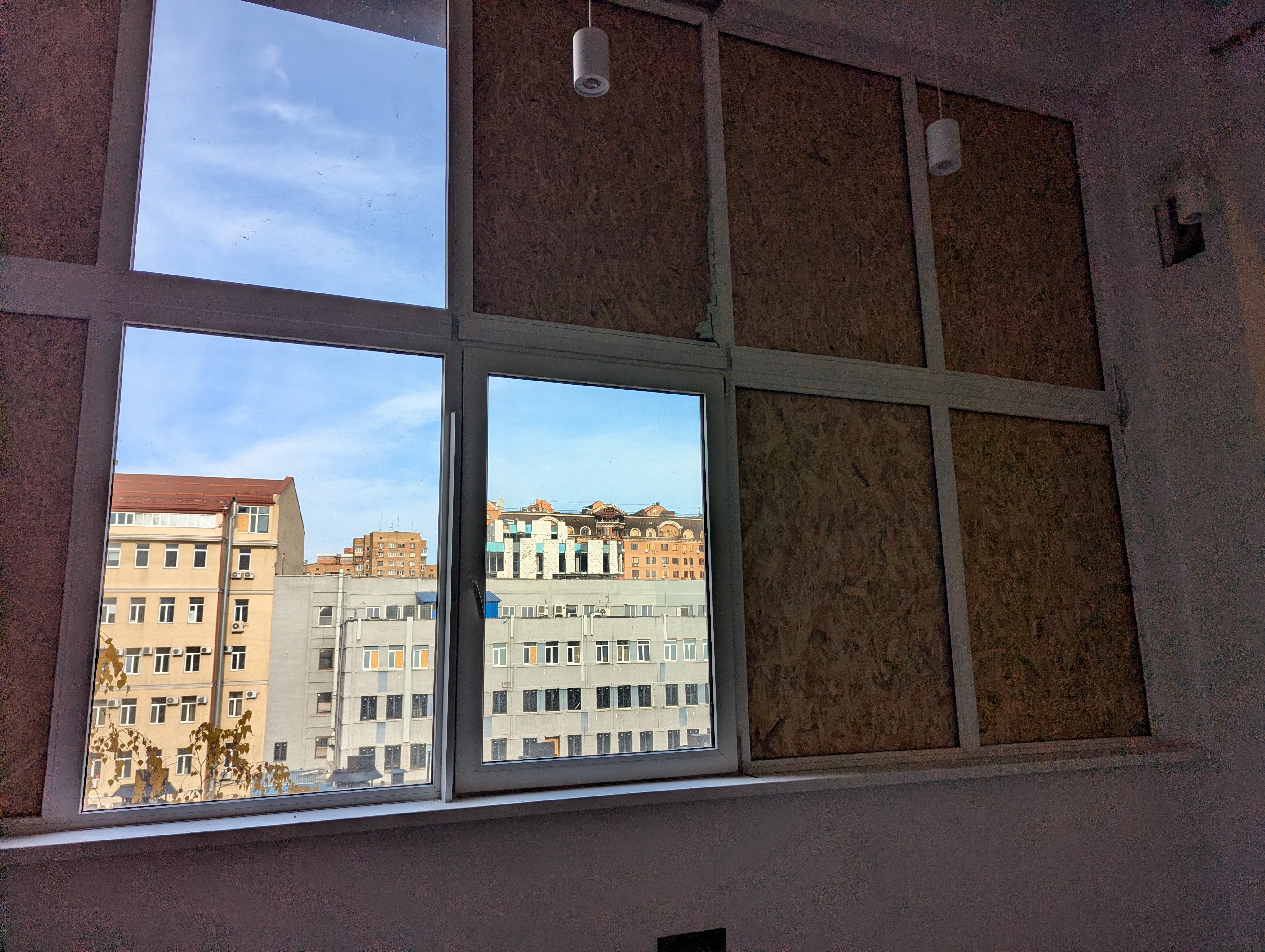
A fallen sign reading “It will be worth it” became both dark humour and motivation.
Some damage was invisible — walls coming loose from frames, glass leaning dangerously, debris embedded inside furniture and walls.
“People think a missile strike is a one-day event,” Samarska said.
“But if you’re directly affected, it lasts for months. You keep walking on metaphorical broken glass. Sometimes literal glass.”
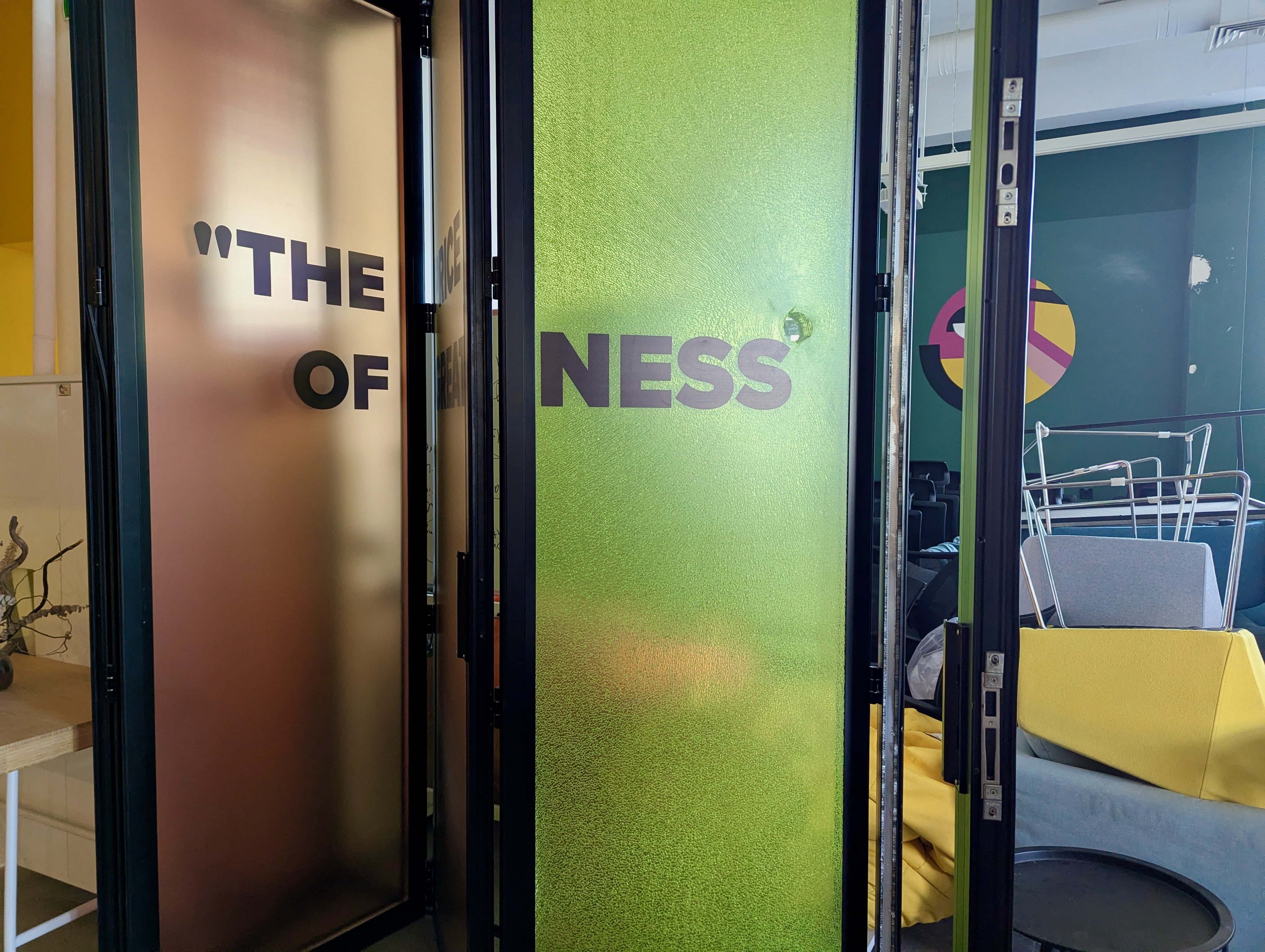
A wartime lifeline
After Russia’s full-scale invasion, LIFT99 evolved from a workspace into a survival centre for the tech community. “When power outages started in 2022, we installed a generator,” Samarska said.
The generator was personally donated by Gero Decker, co-founder of Signavio, who wanted to ensure Ukrainian founders could keep working even when the entire capital went dark.
And Kyiv did go dark. Entire districts — sometimes the whole capital — had no electricity, no heating, no mobile connection, often for days. In those moments, LIFT99 opened its doors for free to anyone in tech who needed a place to charge devices, warm up, connect, or simply sit in the light.
“There were days when so many people came that we literally ran out of chairs,” Samarska says.
“Founders were sitting on the floor, wrapped in jackets, laptops plugged into the generator — the only source of power for several blocks. It sounds unreal now, but it was life-saving.”
Some founders slept at the hub during long attacks. The small bedroom became coveted; others stayed on couches or in meeting rooms. Chernenko recalls a startup couple arriving after a night in a bomb shelter with their tiny, exhausted dog.
“But they still showed up to build. That’s Ukrainian founders: frozen, tired, but unbreakable.”
An expanded mission
Global solidarity — and leadership from within LIFT99 did not retreat during the war — it expanded its mission.
Chaikovska and Sass launched Help99, a tech-driven donation platform enabling global tech leaders to support Ukraine quickly and transparently. It also encouraged many of them to visit Kyiv for the first time.
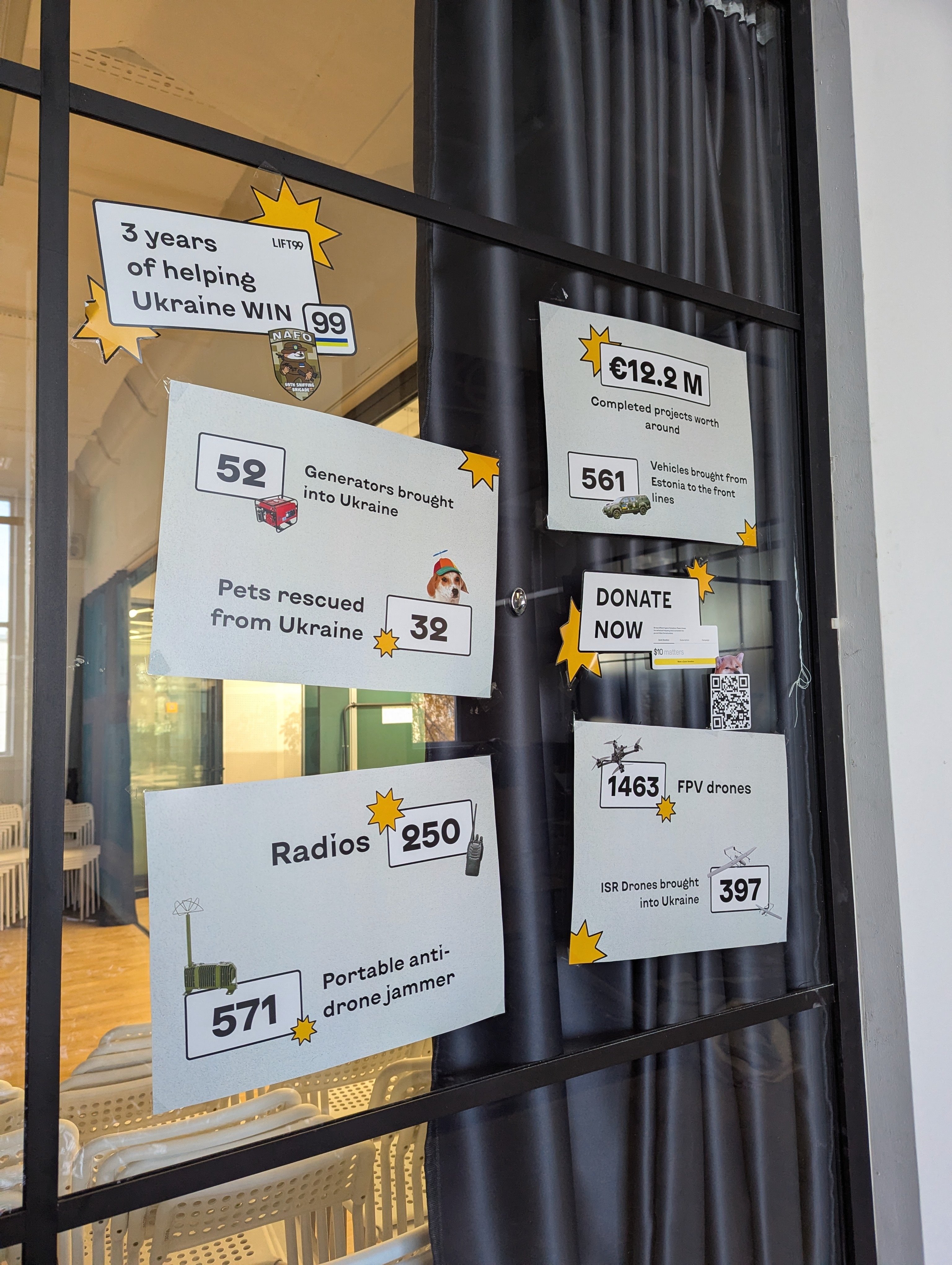
They then launched Coaches for Ukraine — led by Ariane de Bonvoisin — uniting partners from Cherry Ventures, Atomico, world-class coaches, and top angels to mentor Ukrainian founders through the hardest months.
Across these years, LIFT99 took on an additional mission: to push foreign investors, operators, and founders to come to Kyiv, run office hours, invest, and support the Ukrainian teams who chose to stay and build through the war.
Many made their first Ukrainian investments ever because LIFT99 insisted on fostering that physical connection.
Rebuilding — and upgrading: LIFT99 Kyiv Hub 2.0
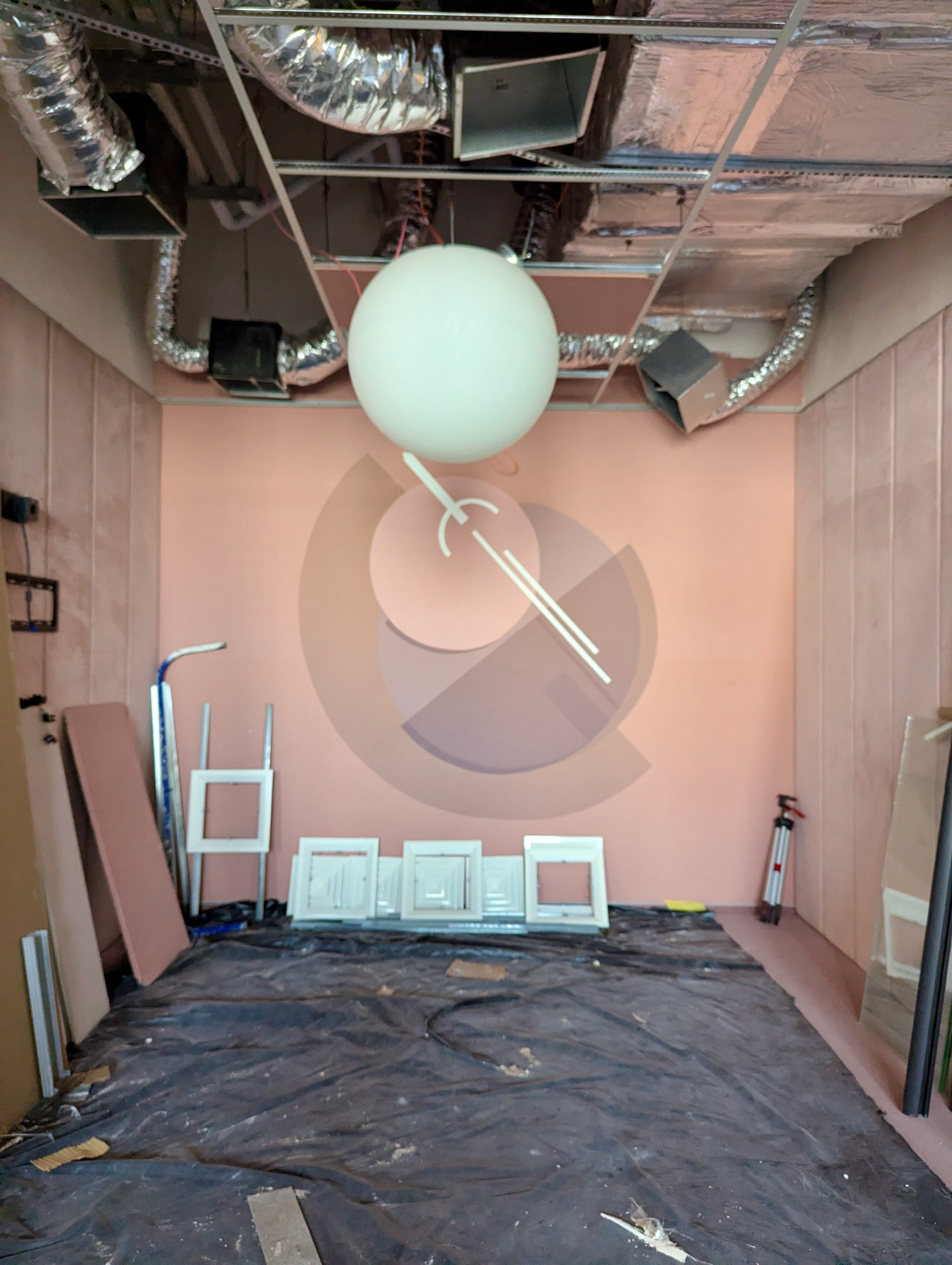
Despite the destruction, LIFT99 is not simply repairing its space. It is building Kyiv Hub 2.0, driven by a clear mission:
to create the most resilient 24/7 place for anyone in Ukraine to launch and run their business.
The upgraded hub introduces infrastructure that the ecosystem has never had before:
- Hackathon Space A dedicated arena for Garage48-style hackathons, prototyping weekends, and community tech challenges.
- Media Room / Content Studio A fully equipped space for recording podcasts, videos, demos, and fundraising materials — with professional production support.
“We want everyone in Ukraine to be able to broadcast high-quality content abroad,” the team says. Residents get priority access and discounts. - Hardware Lab: A compact but powerful lab with 3D printers, basic tools, and workbenches for robotics, hardware, and energy founders.
Kyiv Hub 2.0 isn’t just a rebuild. it’s a declaration that LIFT99 is constructing the next generation of Ukraine’s startup infrastructure in the middle of a war.
Giving, grit, and community
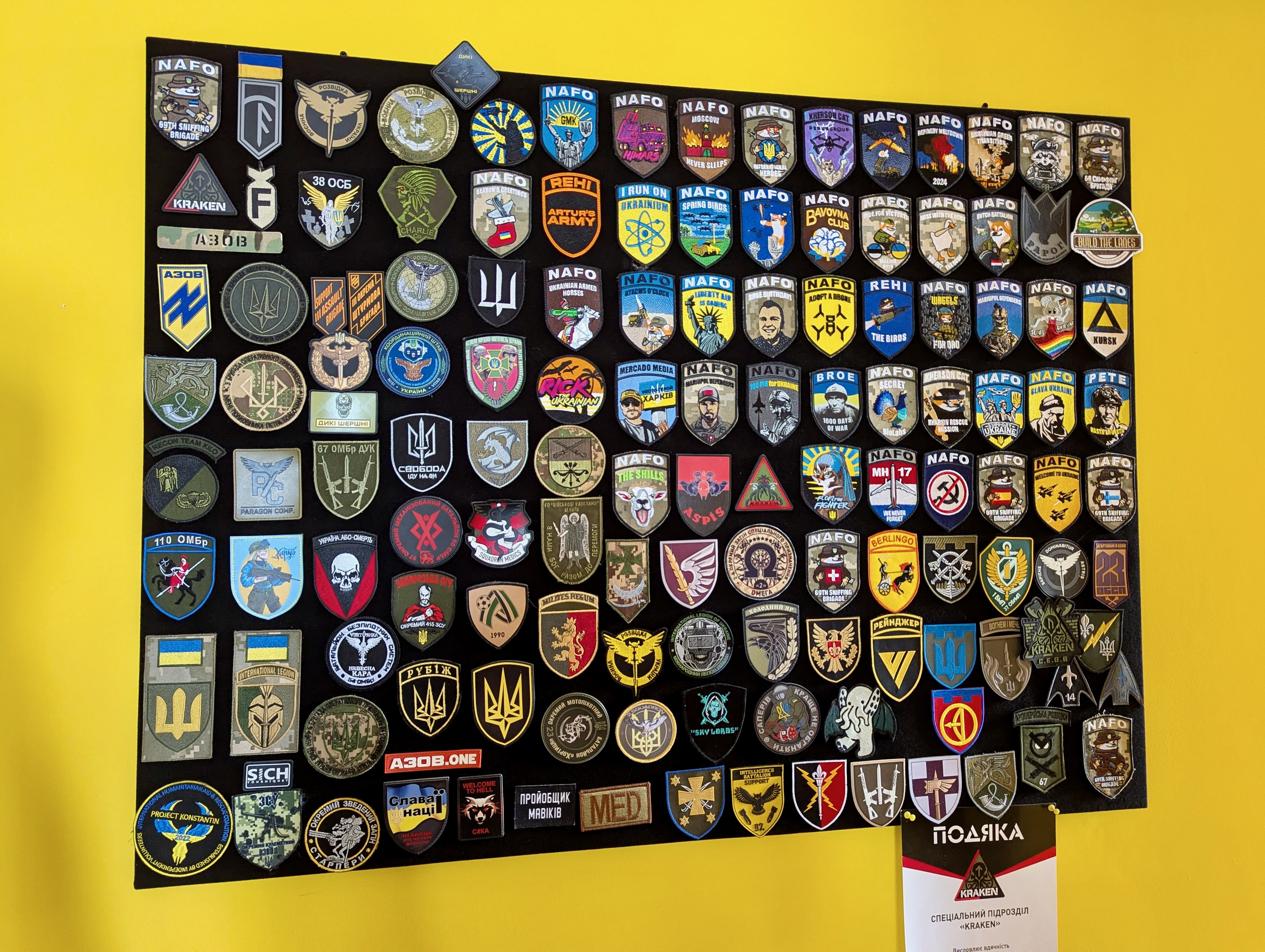
The hub’s walls display patches from NAFO fundraising drives and Help99 campaigns, many of which funded vehicles for the frontline. Receiving an authentic brigade patch — usually reserved for soldiers — is a rare honour.
LIFT99 provides free space to NGOs like:
• Blood Agents — Ukraine's main blood donation coordination network.
• Behind Blue Eyes — offering psychological support and education to children in frontline regions.
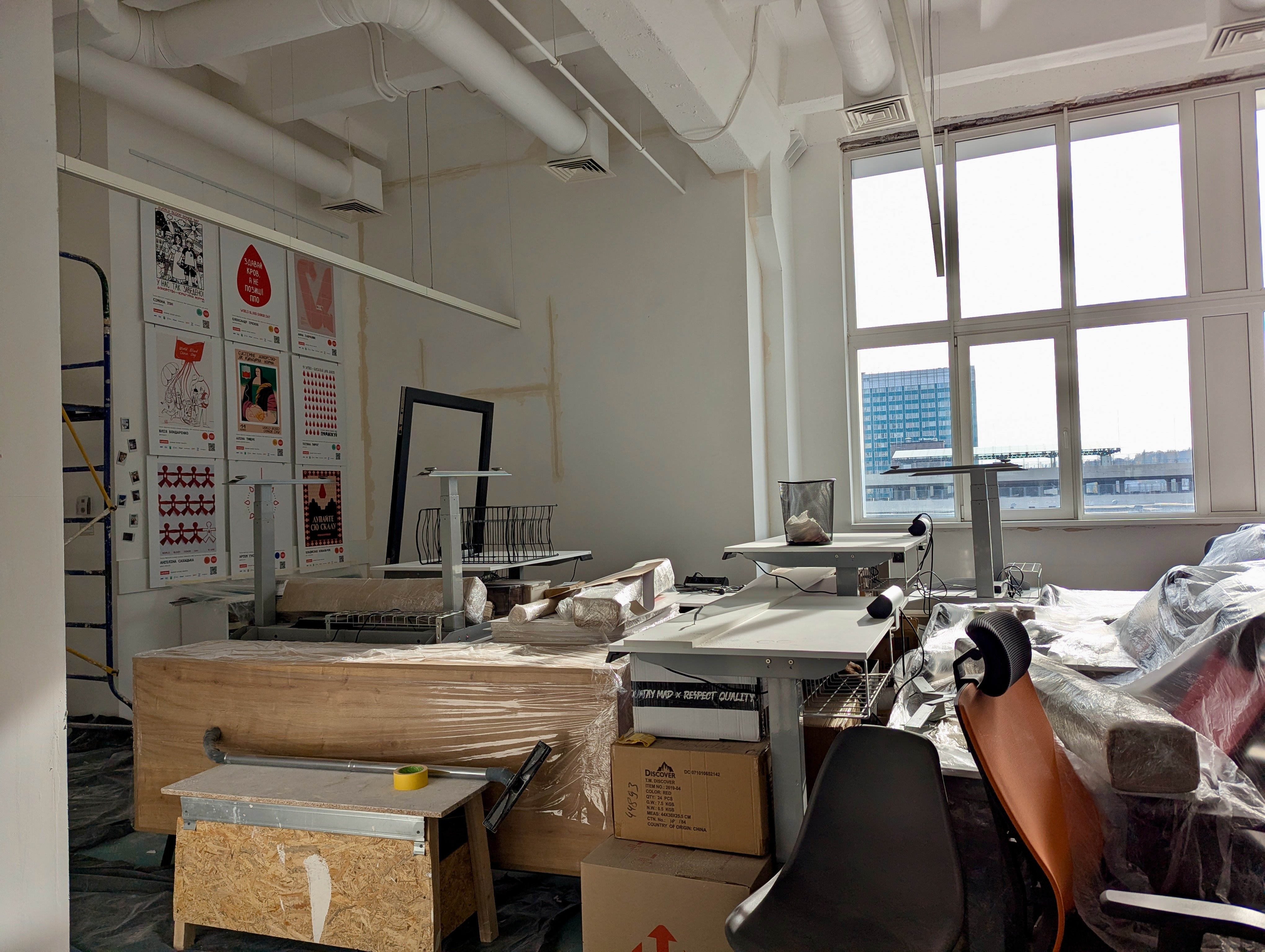
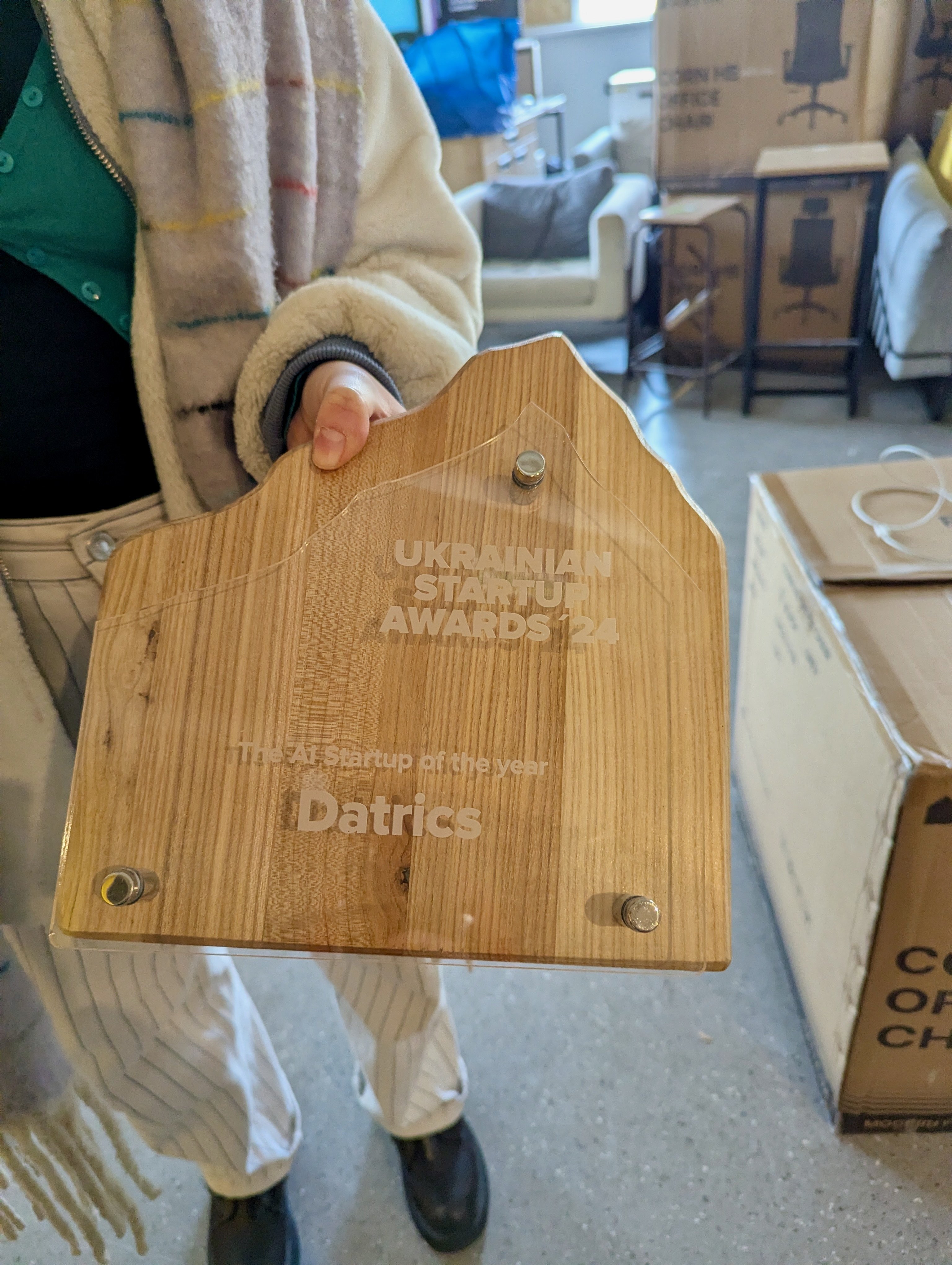
It also hosts the Ukrainian Startups Wall of Fame and annual startup awards, spotlighting the country’s most influential emerging tech companies.
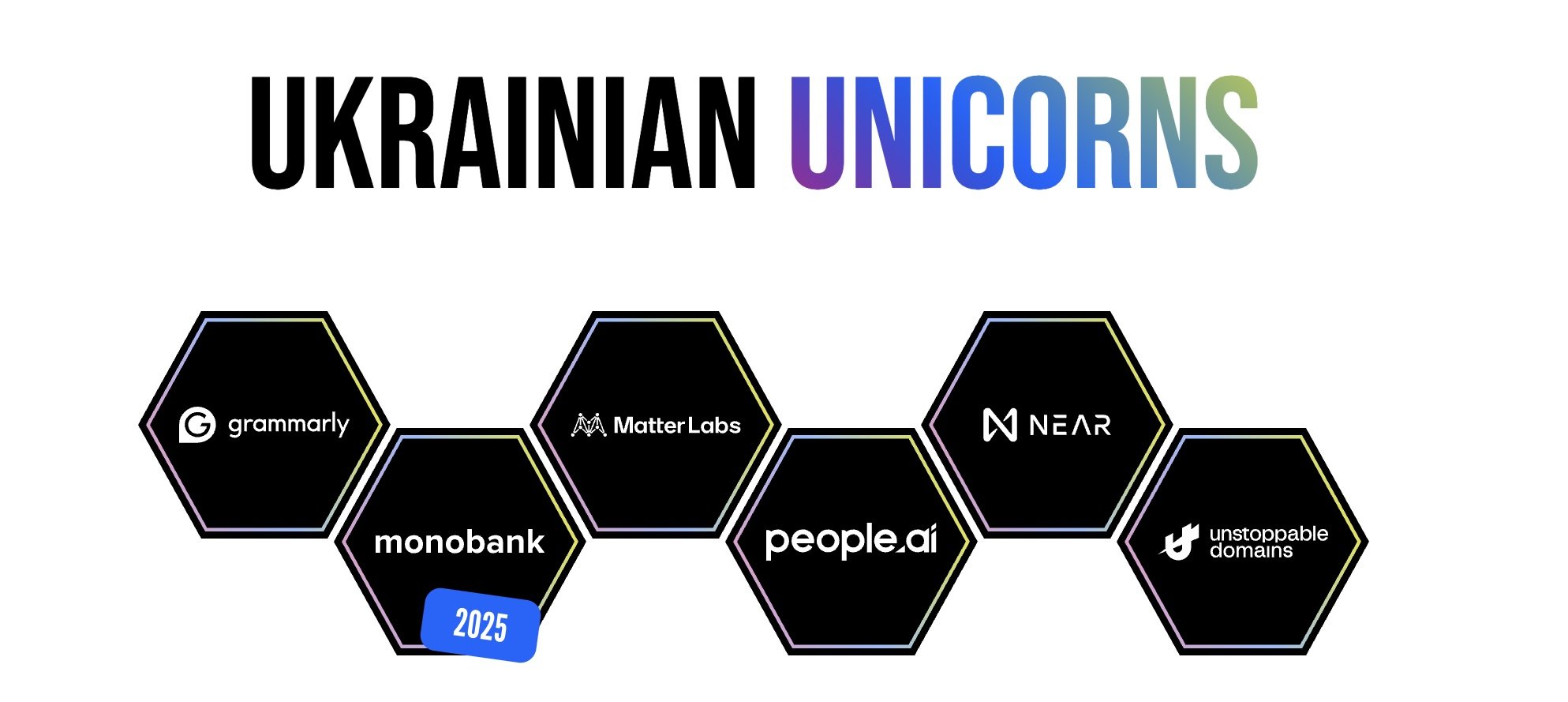
Identity under pressure
Investors often label being based in Ukraine as a risk. For founders, this is painful.
“If you can build a startup here — during missile strikes and blackouts — and still ship a world-class product, then being Ukrainian is a superpower,” Samarska says.
Air raid sirens interrupt calls. Founders hide their location to avoid scaring clients. Others relocate temporarily to raise funds. But LIFT99 urges them not to lose connection.
“They are part of us, even if they’re building from Berlin, Tallinn, or San Francisco,” Chernenko says.
“We want them to keep hiring here, keep contributing, keep identifying as Ukrainian founders. Otherwise, we risk losing our talent forever.”
Want to support LIFT99?
Here’s how you can help:
- Run office hours: The team curates meetings between Ukrainian founders and international VCs, operators, and experts.
- Visiting Kyiv? LIFT99 will show you around, help you navigate the ecosystem, and introduce you to founders.
- Part of the diaspora?
- Stay connected. Your knowledge and network matter. Ukraine needs its global founders more than ever. Chernenko sums it up:
“If you’re exploring Kyiv, thinking about opening a team, or simply curious about the tech scene — LIFT99 is the place. Just come. We’ll plug you in.”

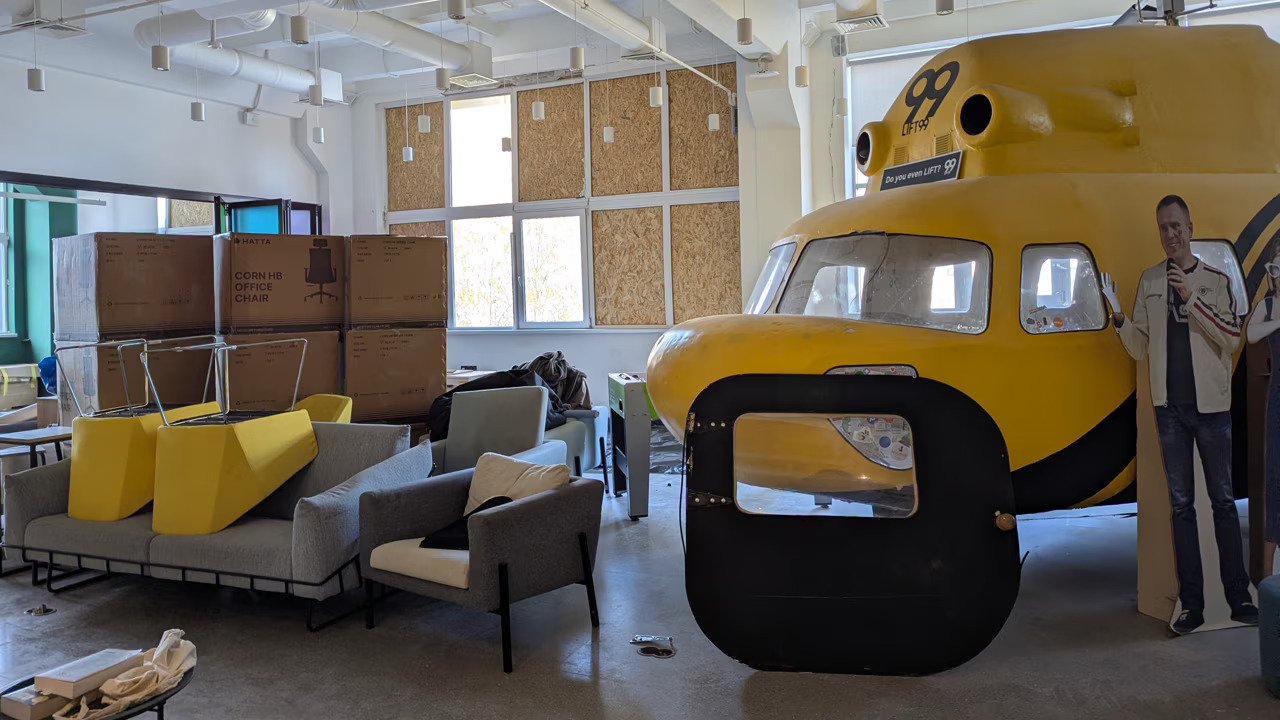

Would you like to write the first comment?
Login to post comments